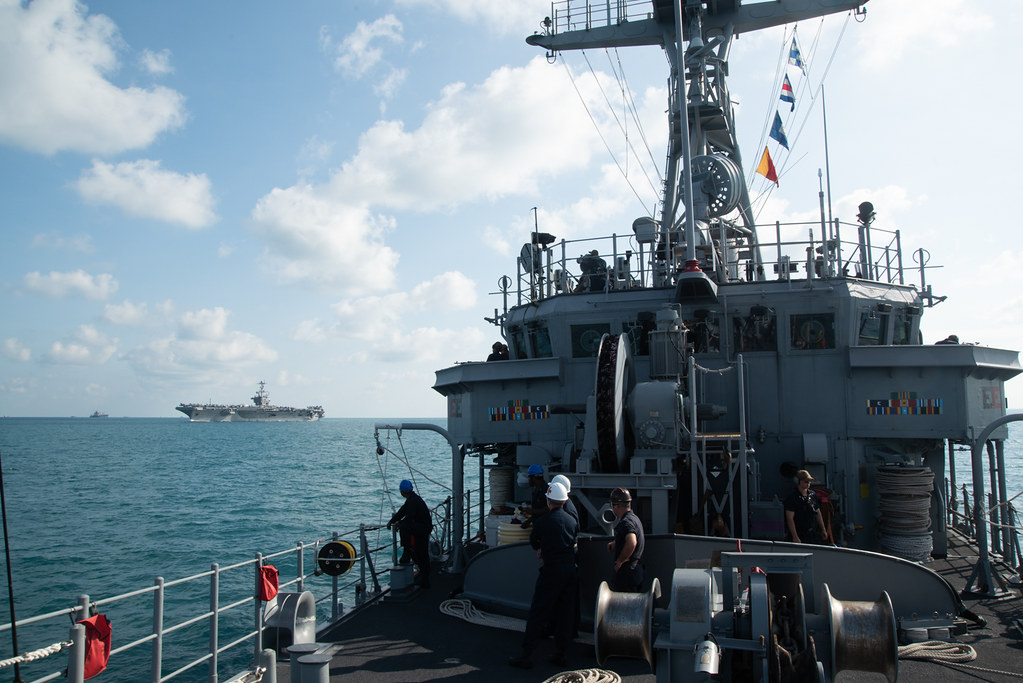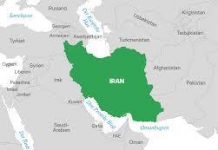
In a development that sees the growing emergence of the Quad, Australia said it will “strongly oppose” Chinese attempts to treat the waters of the East and South China Seas as its own vowing that along with India, Japan and the United States, the Quad will uphold the sovereignty of regional partners.
Earlier last week, Australian Foreign Affairs Minister Marise Payne had a discussions with her counterparts from the “Quad” which focused on the challenges faced in regional maritime security, including China’s use of its domestic coastguard fleet to bully and harass foreign fishing ships in contested waters.
In a statement, Senator Payne said, these key Indo-Pacific democracies are committed to support ASEAN neighbours and “upholding international rules and obligations”.
“We reaffirmed our commitment to supporting an open, inclusive and resilient region where the rights of all countries are respected and disputes are resolved peacefully, free from coercion, and in accordance with international law,” said Payne.
Following the virtual meeting, Japanese Foreign Minister Motegi Toshimitsu expressed serious concerns over China’s new Coastguard Law, which allows its vessels to use “all necessary means” to stop or prevent threats from foreign vessels in waters claimed by China.
Chinese belligerent territorial claims have even claimed the Russian city of Vladivostok, a region with which it does not even share a border with, citing historical links.
In a statement “the four ministers concurred to strongly oppose unilateral and forceful attempts to change the status quo in the context of the East and South China Sea”.
The ministers agreed to “strengthen co-operation on advancing a free and open Indo-Pacific region, including support for freedom of navigation and territorial integrity”, said a spokesman for US Secretary of State, Antony Blinken.
Further, foreign ministers from the Quad also vowed to stand by regional allies and partners during the COVID-19 recovery phase; Beijing is attempting to use the pandemic, which allegedly escaped from its level-4 bio safety lab in Wuhan, to reshape the regional order in its favor.
China has also actively blocked members of the fact finding team from WHO which visited Wuhan from engaging into free flowing discussions with Chinese doctors and scientists who were first to document the coronavirus in Wuhan.
The military coup in Myanmar was also a topic of discussion, with the ministers reiterating “our serious concerns about the military coup in Myanmar and affirmed our commitment to its democratic transition”, said Payne.
Hervé Lemahieu from the Lowy Institute’s power and diplomacy program stated, there was a “shared concern” among Quad partners over China’s attempts to force other nations’ vessels out of the contested waters.
“We are more focused on the South China Sea, but there are a lot of tactics that China is deploying in the East China Sea which are being replicated in the South China Sea, and vice-a-versa,” said Mr Lemahieu. “That includes the use of its coastguard, and trying to make the management of the seas a domestic law enforcement issue as opposed to one that involves sovereign states, which is a dangerous precedent.”
This was the first such meeting since U.S. President Joe Biden won the hotly contested 2020 U.S. Presidency and follows a joint naval exercise by members of the group, which was hosted by India in November 2020.
The foreign ministers agreed to regularly meet, and laid the foundation for the first-of-its-kind Quad leaders’ meeting in coming subsequent months.
The planned meeting will bring together Australia’s Scott Morrison, U.S. President Joe Biden, Japan’s Yoshihide Suga and India’s Narendra Modi and is likely to occur in the first half of the year; it will help cement the new US President’s Indo-Pacific policy agenda.
Morrison’s government is striving hard to elevate the Quad as a security grouping, and is also a strong supporter of Britain’s proposed Democratic Ten or D10 grouping of democratic nations, which will replace the G7.
In yet another instance that marks a collective stand against Beijing’s polcies, Australia joined 57 other countries to support a Canadian-led international declaration denouncing state-sponsored arbitrary detention of foreign citizens.
The development comes in the wake of nearly 800 days after Canadians Michael Spavor and Michael Kovrig were arbitrarily detained in China after Canada detained Huawei’s CFO at the request of the United States following serious allegation of financial fraud and violating U.S. sanctions vis-à-vis Iran.




